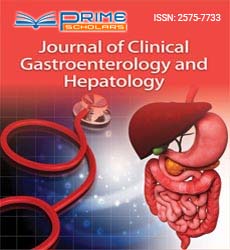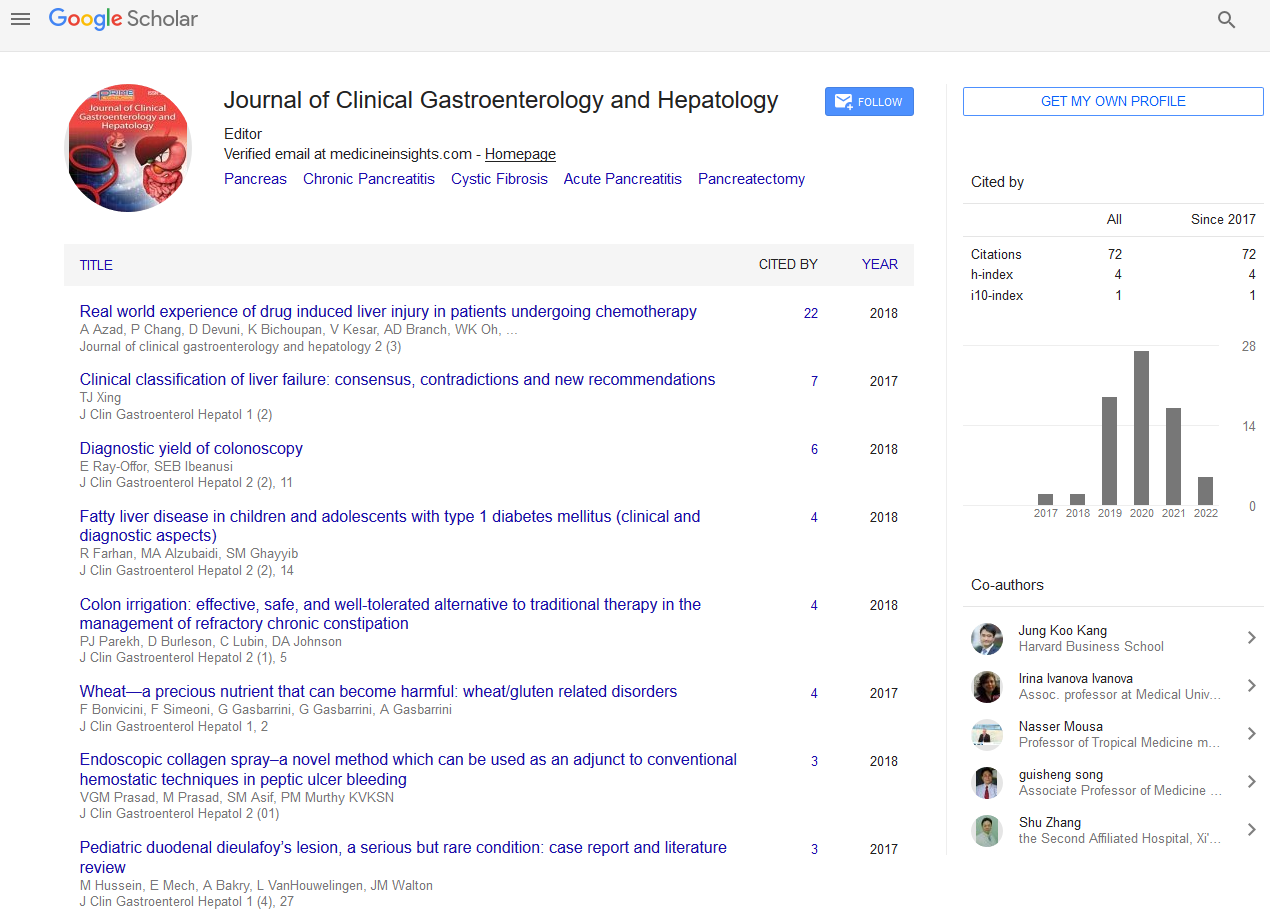Commentary - (2024) Volume 8, Issue 4
Understanding Gastric Juice: The Body's Digestive Powerhouse
Lian Xun*
Department of Anatomy, Wuhan University, China
*Correspondence:
Lian Xun,
Department of Anatomy, Wuhan University,
China,
Email:
Received: 31-Jul-2024, Manuscript No. IPJCGH-24-21625;
Editor assigned: 02-Aug-2024, Pre QC No. IPJCGH-24-21625 (PQ);
Reviewed: 16-Aug-2024, QC No. IPJCGH-24-21625;
Revised: 21-Aug-2024, Manuscript No. IPJCGH-24-21625 (R);
Published:
28-Aug-2024, DOI: 10.36648/2575-7733.8.4.34
Description
Gastric juice is a vital component of the digestive system,
playing a crucial role in the breakdown of food and the
absorption of nutrients. Composed primarily of hydrochloric
acid, pepsinogen, intrinsic factor, and various enzymes, gastric
juice is secreted by the gastric mucosa in the stomach. This
article explores the composition, functions, regulation, and
clinical significance of gastric juice, highlighting its importance
in maintaining digestive health. This high acidity is essential
for activating digestive enzymes and killing harmful bacteria
ingested with food. This is the inactive precursor of the enzyme
pepsin, which is responsible for breaking down proteins into
smaller peptides. A deficiency in intrinsic factor can lead
to pernicious anemia, highlighting the importance of this
component. Secreted by the mucous cells in the gastric lining,
mucus protects the stomach lining from the corrosive effects of
acid and digestive enzymes. Gastric juice also contains various
other enzymes and electrolytes, including lipase and potassium
ions, which assist in digestion and maintaining pH balance.
Gastric juice serves several key functions in the digestive
process: The acidic environment activated by gastric juice
facilitates the denaturation of proteins, making them more
accessible to enzymatic action. Pepsin begins the digestion of
proteins into smaller peptides, which are further broken down
in the small intestine. The acidity of gastric juice is a formidable
barrier against pathogens. Many bacteria and viruses are
unable to survive the harsh conditions of the stomach, thus
playing a protective role in preventing infections. Intrinsic
factor is essential for the absorption of vitamin B12, a nutrient
crucial for red blood cell formation and neurological function.
Without adequate intrinsic factor, vitamin B12 absorption
is severely impaired, leading to significant health issues. The
acidic environment not only activates pepsinogen to pepsin
but also influences the activity of other digestive enzymes that
function optimally at low pH levels. The secretion of gastric
juice is a finely tuned process regulated by neural and hormonal
signasls. There are three main phases of gastric secretion:
Triggered by the sight, smell, or thought of food, this phase
involves the brain sending signals to the stomach to begin
producing gastric juice. This anticipatory response is mediated
by the vagus nerve, enhancing digestive readiness even before
food enters the stomach. Once food enters the stomach, it
stretches the gastric walls, stimulating the secretion of gastric
juice. This phase is characterized by the release of gastrin, a
hormone that promotes the production of hydrochloric acid
and pepsinogen, enhancing digestion. As partially digested
food moves into the small intestine, the presence of acidic
chyme triggers the release of hormones such as secretin and
cholecystokinin, which inhibit gastric juice secretion to prevent
excessive acidity in the intestines. Understanding gastric
juice and its functions is crucial for diagnosing and treating
various gastrointestinal disorders: The lower oesophageal
sphincter fails to prevent the backflow of gastric juice into
the oesophagus, leading to symptoms like heartburn and
oesophageal irritation. Management often involves dietary
changes and medications to reduce acidity. These conditions
refer to the absence or reduced production of hydrochloric
acid in gastric juice, which can impair digestion and nutrient
absorption, leading to deficiencies and other gastrointestinal
issues. Diagnosis often involves blood tests and potentially a
biopsy.
Acknowledgement
None.
Conflict Of Interest
The authors declare that they have no conflict of interest.
Citation: Xun L (2024) Understanding Gastric Juice: The Body’s Digestive Powerhouse. J Clin Gastroenterol Hepatol. 8:34.
Copyright: © 2024 Xun L. This is an open-access article distributed under the terms of the Creative Commons Attribution Li�cense, which permits unrestricted use, distribution, and reproduction in any medium, provided the original author and source
are credited.

